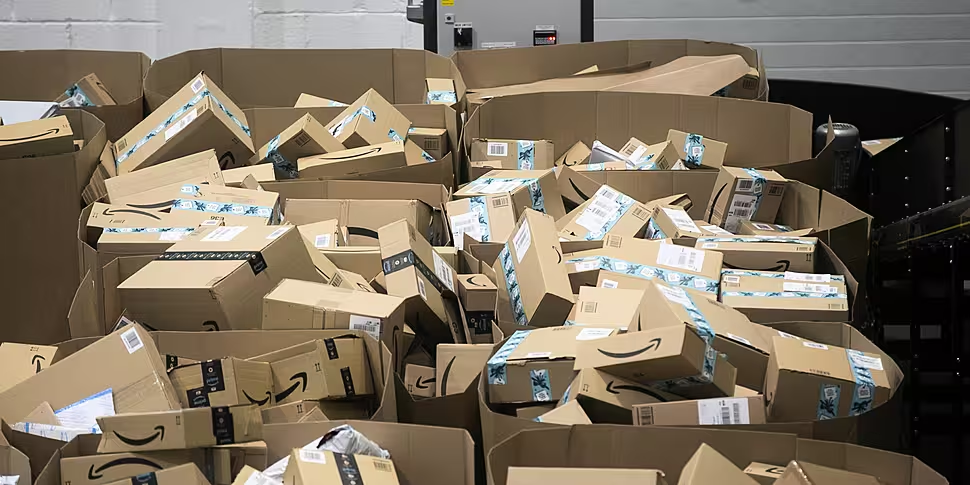People who buy goods from the UK are no longer able to rely on EU consumer protection, a junior minister has warned.
Robert Troy says consumers also face potential VAT and custom charges when buying online from British retailers.
Despite the Brexit trade deal, Irish consumers face a range of changes to online shopping from British retailers now that the UK has formally left the EU.
Some retailers such as ASOS say they'll ship goods from EU-based warehouses - therefore meaning customers can shop as normal and not have to pay any new duties or taxes.
However, others such as Amazon UK have advised that packages may be subjects to custom duties, taxes and import fees.
Fianna Fáil's Robert Troy - Minister of State with responsibility for Trade Promotion - says it's important people exercise care and caution before they order online.
Speaking on The Pat Kenny Show, he explained: “Since January 1st, there have been two major changes: in the area of taxation, and consumer rights.
“Goods in excess of €22 will now be liable for Irish VAT at the same rate applied in Ireland to similar goods. Any purchases over €150 - which did not originate in the UK or another EU country - will now be liable to custom charges.
“As the UK is no longer a member of the EU clearly, you will no longer benefit from EU consumer rights - you will be relying on UK consumer protection."
He said in some instances websites are taking account of the changes, and are charging Irish VAT before dispatch.
However, other websites aren't doing that - meaning An Post or a delivery company will seek the Irish VAT amount due from the customer, and potentially charge a handling fee.
Minister Troy said: "There will be a requirement there, and that's why they will charge a handling fee.
"For any produce coming in from outside the EU, this has always been the case. If customs and charges applied, An Post when delivering it would ensure those charges were paid.
"What's happening now is because the UK is no longer a member of the EU, these charges are now applicable for items coming from the EU."
He advised shoppers that the easiest way to avoid these additional fees is to shop local.
He also advised that a '.ie' website address doesn't always mean the business is located in Ireland, so customers should make sure to check the physical address to find out where exactly the goods will be coming from.









